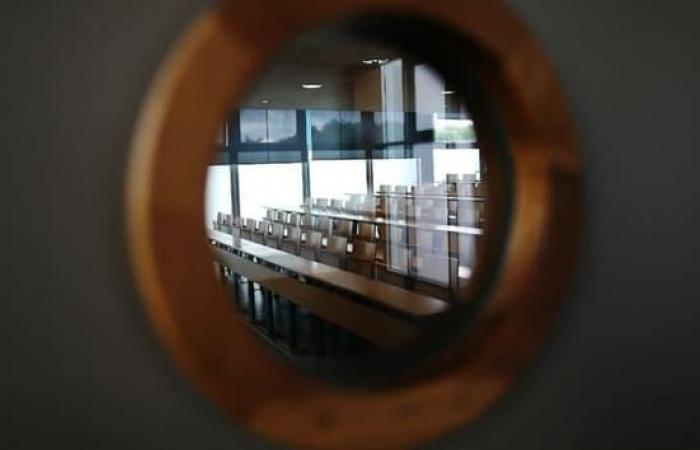
A Senate information mission published on Wednesday, June 26, expressed alarm at “the resurgence, within many establishments (of higher education, Editor’s note), of a climate of anti-Semitism.”
The work of this “flash mission”, approved at the end of March by the Senate after the occupation of an amphitheater at Sciences Po Paris in support of the population of Gaza, began at the end of April and was led by two rapporteurs, the centrist Pierre-Antoine Lévi and the radical Bernard Fialaire.
“Beyond isolated and sporadic actions which have never completely ceased and which are often the work of sympathizers of the ultra-right, this reactivation of anti-Semitism in higher education has been part of an extremely collective dynamic for several months. worrying, fueled by an ideology now also belonging to the far left of the political spectrum”, we can read in this report.
Various acts
67 anti-Semitic acts have been recorded by France Universités since the Hamas attacks in Israel on October 7 and the Israeli response, “i.e. double those recorded over the entire 2022-2023 academic year”, indicate the senators. According to the Minister of Education Nicole Belloubet this Monday June 24 on BFMTV-RMC, this figure is 650 in all French educational establishments.
This “climate of anti-Semitism” in higher education ranges “from anonymous tagging to physical aggression, including the dissemination of insulting messages on online conversation groups”.
The report cites in particular “repeated jostling in the corridors, changes of place in lecture halls and classrooms, the repetition of jokes based on anti-Semitic clichés or even the isolation of certain students when it comes time to form groups of work to prepare a presentation.
According to this fact-finding mission, all this “leads a number of Jewish students to fear and avoid attending campuses, thus renouncing certain attributes of university life.”
“A massive phenomenon of under-declaration”
While this Senate mission was launched after the events at Sciences Po Paris, the report underlines that “the media coverage of the excesses that occurred during recent mobilizations may have produced a magnifying glass effect on certain establishments without completely corresponding to reality”.
Thus, if we observe a “more marked politicization of students in social and political sciences”, it is not only in these faculties that the phenomenon is present. As an illustration, there is “concern over the regular occurrence of anti-Semitic acts in the faculties of medicine and pharmacy”.
In addition, the rapporteurs deplore “a massive phenomenon of under-reporting common to all attacks of a racist and discriminatory nature” and therefore believe that the number of acts recorded is lower than reality, also due to the management teams, some of which favor minimal action and ‘no waves’.
A difficult “legal qualification of certain acts”
This Senate fact-finding mission notes that “modes of expression have evolved as a result of the ideological polarization associated with student mobilizations in favor of Palestine.”
This implies, therefore, difficulties “in proceeding with the legal qualification of certain acts” in particular in order to “distinguish between legitimate political criticism of the Israeli government, protected by freedom of expression, and anti-Semitic statements constituting crimes punishable by criminal law”.
“These difficulties relate in particular to ‘anti-Zionist’ positions,” the report adds.
There is also a difficulty in acting when these acts occur “in peri-university contexts such as student evenings, internship locations or online messaging”.
Until the intervention of the police
The rapporteurs thus publish a list of recommendations to establishments, calling on them to fight against anti-Semitism “by taking advantage of the progress made in the fight against other violence and discrimination which affects students, in particular sexist and sexual violence”.
They plead for better “cooperation” between university officials and prosecutors, “strengthen training” and “awareness” while reaffirming the principles and rules “which are binding on the university community” and “systematizing sanctions” .
The senators recall that “University actors must mobilize to defend the culture of debate within establishments” but affirm that “when the possibilities of dialogue have been exhausted, this defense can involve a proportionate and temporary limitation of freedoms expression and assembly of students, or even by triggering the intervention of the police within the framework of university franchises”.
Original article published on BFMTV.com





